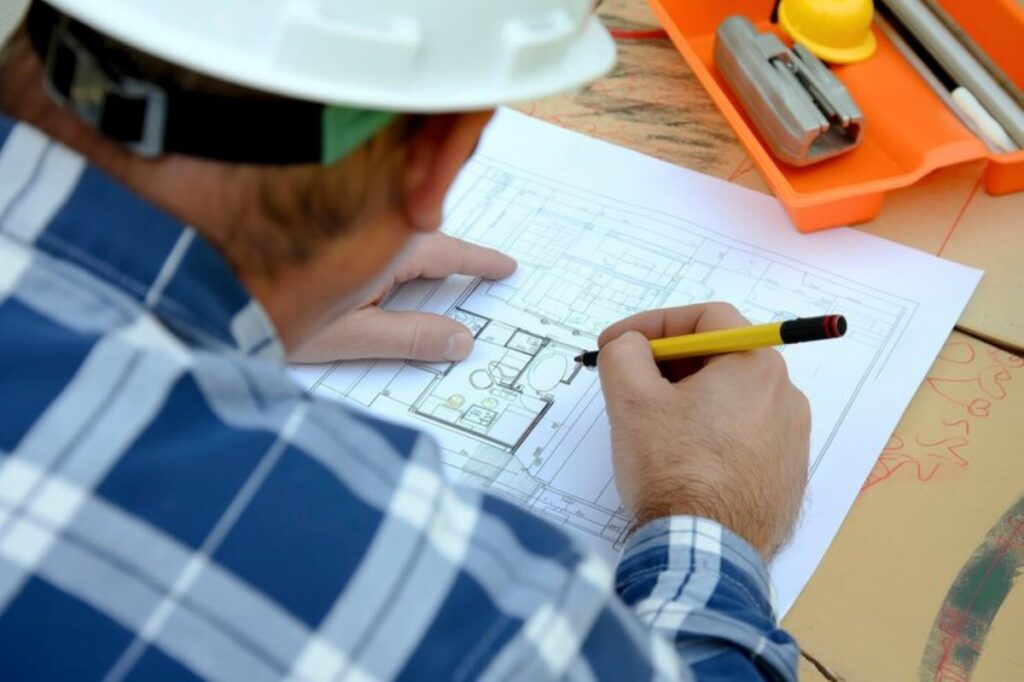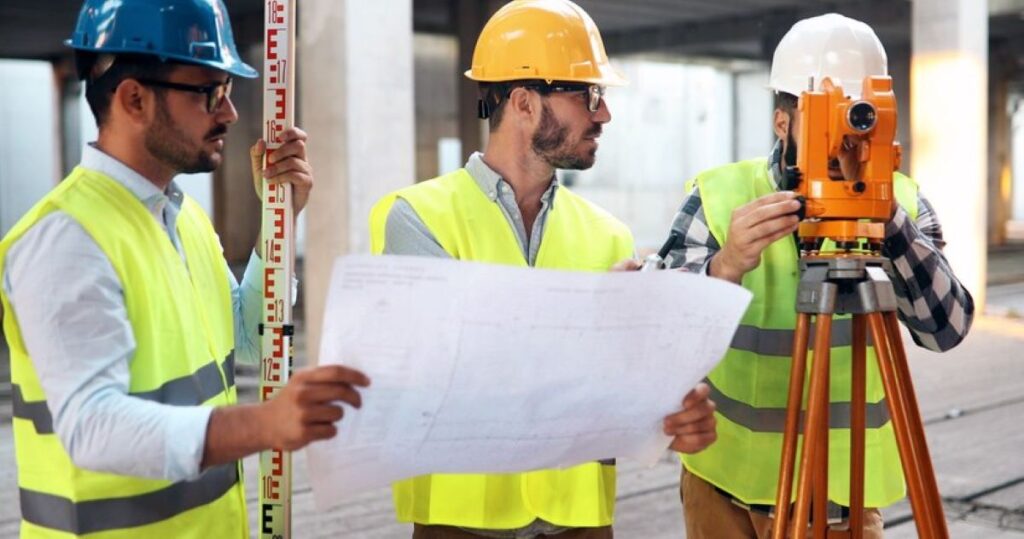Boundary disputes are a common source of contention between property owners, often leading to misunderstandings and conflicts. Boundary surveyors play a crucial role in resolving these disputes, providing expert insights into property boundaries and ensuring that legal definitions are adhered to. This article explores the vital functions, skills, and processes involved in boundary surveying, particularly in the context of property disputes.
Understanding the job of a boundary surveyor
A boundary surveyor is a professional who specializes in determining the precise boundaries of land parcels. Their work is essential for property acquisition, development, and dispute resolution. To achieve this, boundary surveyors employ advanced tools and techniques, including GPS technology, cadastre mapping, and traditional surveying methods.
The importance of accurate boundary surveys
Accurate boundary surveys are critical in establishing the true lines of property ownership. Legally mandated land descriptions are often based on these surveys, and misinterpretations can lead to significant financial and legal ramifications for property owners. For instance, inaccurate surveys may result in encroachment disputes, where one party builds or carries out works on land that technically belongs to another.
Moreover, errors in boundary delineation can disrupt real estate transactions. Buyers rely on surveyors to ensure that they are purchasing land with clearly defined limits, which can be vital for future developments or the construction of structures. Thus, an accurate survey serves as a safeguard, protecting investments and providing peace of mind.
In addition to personal disputes, boundary surveys play a crucial role in community planning and development. Local councils often require precise boundary information to ensure that zoning laws and regulations are adhered to. This is particularly important in urban areas where land use is tightly regulated. A well-conducted boundary survey can help prevent future conflicts over land use, ensuring that developments align with community standards and environmental considerations.
The skills and qualifications of a boundary surveyor
Boundary surveyors must possess a combination of technical skills and knowledge of property law. A degree in surveying or a related field is typically required, alongside relevant certifications and licensure. Competence in using modern surveying equipment and software is essential, allowing surveyors to perform accurate measurements and analyses.
In addition to technical abilities, excellent communication skills are indispensable. Boundary surveyors must convey complex information to clients, legal representatives, and in some cases, the courts. Their role often involves mediating between conflicting parties, necessitating strong negotiation skills and a thorough understanding of legal processes to facilitate effective resolutions.
Furthermore, boundary surveyors must stay abreast of changes in legislation and technological advancements in their field. Continuous professional development is vital, as it allows surveyors to adapt to new tools and methodologies that enhance their accuracy and efficiency. This commitment to lifelong learning not only benefits the surveyors themselves but also ensures that clients receive the most up-to-date and reliable services possible, reinforcing the importance of their role in the property market.
The link between boundary surveyors and property disputes
Boundary surveyors frequently find themselves at the centre of property disputes, serving as both elucidators and negotiators. The work they do can determine the outcome of disagreements between adjacent landowners, making their role pivotal in these contexts.
Common types of property disputes involving boundary surveyors
Property disputes can arise from a variety of issues. One common type involves encroachments, where one property owner builds structures that extend over the boundary line into another’s land. Fences, walls, and even landscaping can lead to confusion and contention. These encroachments can sometimes be unintentional, stemming from a lack of clear understanding of property lines, which can escalate tensions between neighbours who may have lived harmoniously for years.
Another frequent dispute relates to adverse possession, where a neighbour claims ownership of a portion of land based on prolonged use or occupancy, despite not having legal title. Surveyors may be called upon to establish the actual boundary lines to determine ownership rights in such cases. This situation often arises in rural areas where land is less frequently surveyed, and historical use can complicate matters further. The emotional stakes can be high, as individuals may have invested time and resources into maintaining what they believe to be their property.
How boundary surveyors can help resolve disputes
Boundary surveyors play a critical role in conflict resolution by providing objective assessments based on factual data. Their surveys and reports can clarify property boundaries, thus confirming rightful ownership with evidence. This information is invaluable in negotiations between disputing parties and can help avert protracted legal battles. In addition to their technical expertise, surveyors often bring a wealth of knowledge about local land laws and regulations, which can further inform the discussions and help parties understand their legal standing.
Moreover, boundary surveyors can often mediate discussions to facilitate settlements. Their expertise provides not only clarity but also a sense of trust, enabling parties to work towards an amicable resolution. In many situations, having a qualified surveyor involved can lead to quicker settlements, saving both time and costs associated with litigation. Their ability to present findings in a clear and comprehensible manner can help demystify complex legal jargon, allowing all parties to engage in informed discussions. Additionally, boundary surveyors may also offer recommendations for future land use and boundary maintenance, fostering a cooperative spirit among neighbours and potentially preventing future disputes.

The legal aspects of boundary surveying
Boundary surveying operates within a framework of legal responsibilities and obligations. Understanding these legal aspects is critical for both surveyors and property owners, especially when disputes escalate into court proceedings.
The role of boundary surveyors in court cases
When disputes escalate to litigation, boundary surveyors often act as expert witnesses. Their detailed reports can be instrumental in influencing a judge’s or jury’s understanding of the case. Surveyors provide unbiased, well-documented analysis, which can clarify complexities in property law.
In court, they may be required to defend their findings and methodology, reinforcing the importance of integrity and thoroughness in their work. Their ability to communicate effectively in such settings is crucial, as their testimony can substantially impact the outcomes of property disputes. Furthermore, the credibility of a boundary surveyor’s testimony can hinge on their professional qualifications and experience, making it essential for them to stay updated with the latest developments in surveying technology and legal precedents. This ongoing education not only enhances their expertise but also fortifies their standing as reliable witnesses in legal contexts.
Legal responsibilities and liabilities of a boundary surveyor
Boundary surveyors carry significant legal responsibilities. They must ensure their work adheres to local laws and regulations as well as industry standards. Inaccurate surveys can lead to legal consequences and potential liability claims against the surveyor, creating a need for diligent practice.
Surveyors are also required to maintain comprehensive records of their surveys, methodologies, and communications with clients. This documentation serves as a safeguard, illustrating their adherence to professional standards and providing evidence should a dispute arise regarding their work. Additionally, boundary surveyors must navigate the intricacies of property rights, easements, and encroachments, which can further complicate their responsibilities. Understanding the nuances of these legal concepts is vital, as they can significantly affect property ownership and usage rights. The ability to interpret and apply these legal principles not only enhances a surveyor’s effectiveness but also ensures that they provide their clients with the most accurate and legally sound advice possible.
The process of a boundary survey
The boundary survey process is methodical and involves several distinct steps to ensure accuracy and reliability. Each phase contributes to building a comprehensive understanding of property lines.
Initial steps in a boundary survey
The initial phase of a boundary survey typically involves gathering existing legal documents, such as deeds and previous survey reports. Surveyors review these documents to establish a baseline understanding of the property in question.
After reviewing the documentation, surveyors then conduct a site visit, employing tools such as GPS and total stations to perform accurate measurements. This on-site work is critical, as it allows them to visually assess the boundaries and any physical features that may influence property lines.
During the site visit, surveyors also take note of any encroachments or easements that may affect the property. Encroachments can include structures that extend beyond the property lines, such as fences or buildings, while easements may grant others the right to use a portion of the land for specific purposes, like utility access. Understanding these factors is essential, as they can complicate boundary determinations and potentially lead to disputes if not properly documented.
Detailed analysis and report preparation
Following the site visit, boundary surveyors compile their findings into a detailed report. This report includes a description of the methods used, the measurements taken, and a clear visual representation of the boundaries, often complemented by maps.
Once the report is completed, it is shared with the client and, if necessary, presented to relevant parties involved in disputes. This comprehensive documentation serves as a valuable resource for navigating any issues related to property boundaries. Additionally, it may be used in legal proceedings or negotiations, providing a solid foundation for discussions about land use and ownership rights. The clarity and precision of the report are paramount, as they not only reflect the surveyor’s expertise but also ensure that all stakeholders have a clear understanding of the established boundaries, thereby minimising the potential for future conflicts.
The impact of boundary disputes on property owners
Boundary disputes can have profound impacts on property owners, influencing not only financial standing but also emotional well-being. Understanding these implications is essential for property owners who may find themselves embroiled in conflicts.
Emotional and financial implications of boundary disputes
Constructing a home or managing a property is often one of the most significant investments individuals make. Thus, boundary disputes can lead to considerable emotional stress as people grapple with uncertainty regarding their property rights and potential loss of investments.
Financially, disputes can be draining, involving legal fees, potential court costs, and expenses related to rectifying boundary issues. Such financial strain can escalate quickly, particularly when properties are entangled in prolonged negotiations or litigation.

The importance of resolving disputes promptly and professionally
Timely resolution of boundary disputes is essential to minimise long-term repercussions. Engaging a boundary surveyor early in the process can help clarify misunderstandings and present solutions that prevent escalation.
Furthermore, resolving disputes professionally, with clear communication and adherence to legal requirements, can preserve relationships between neighbours. Property owners benefit greatly from maintaining amicable ties, as community dynamics can be adversely affected by unresolved disputes.
In conclusion, recognising the vital role of boundary surveyors in property disputes can empower property owners to make informed decisions and take proactive steps towards resolving conflicts effectively. Their expertise not only protects individual investments but also fosters a more harmonious community atmosphere.
Related : What Does an Engineering Surveyor Do? A Complete Guide
